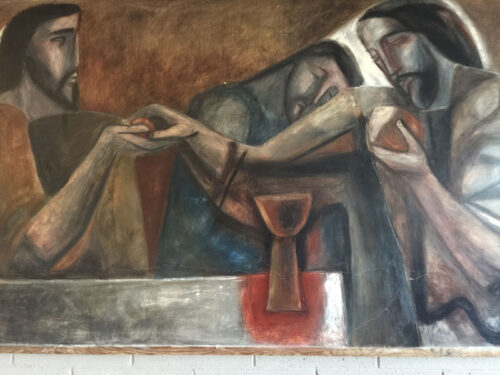Over the years I have changed the emphasis and the focus of the counseling and pastoral direction that I provide. Initially my emphasis was on the traditional approach for ministry to the scrupulous that was embedded in the pastoral theology textbooks. I understood that the person with scrupulosity suffered from a tender conscience. If a scrupulous person would freely place themselves under the direction of a competent confessor, they would enjoy some needed relief. This was the consistent directive of St. Alphonsus Liguori and the pastoral practice that was in place for centuries. It is and was particularly good advice for those who suffer with a tender conscience. Unfortunately, it is inadequate advice if something more is going on.
Gradually, the “something more that was going on,” I discovered was that often scrupulosity was a religious manifestation of Obsessive-Compulsive Disorder (OCD). For a person who suffered with OCD the traditional pastoral practice and direction was inadequate and not helpful. It might provide some relief, but the relief was only temporary. The only way to effectively treat OCD is a treatment plan that is beyond the skill or the ability of a confessor; trained professional psychological therapists are required. A perfect treatment plan would include communication between a confessor, a therapist, and the person who suffered with the disorder but unfortunately this was not the common practice. The result was often that the person with scrupulosity was not receiving the treatment that was required or learning helpful management protocols that would be useful.
I also learned that even though the most effective treatment for scrupulosity included the necessity of some manner of psychological therapy, what was most needed was routinely rejected. Often the reason for this rejection was that the treatment itself would “rub up against” strongly held religious beliefs that would make therapy impossible. Examples would include deliberately engaging behaviors that triggered the OCD response but were also understood as sinful. In such an instance the client often believed that the therapist was not helping but rather leading them further into sin. Still another belief was that by trying to find a way out of the scrupulous disorder a person might be guilty of not “carrying their cross,” and somehow not being faithful to Jesus. The list of possible reasons for resisting therapy is extensive.
Perhaps the most crippling resistance to therapy were those people who spent countless hours researching theological journals, the writings of the saints, and various other resources looking for any scrap of traditional teaching that might bolster and support their resistance. Through this effort they could justify their own resistance and even call into question the orthodoxy of people who were trying to help them. They become the valiant warrior in defense of the truth, or at least the truth the way that they have defined and understand it. I admire their persistence, but I also understand the futility of their chosen path. All they are accomplishing is the postponement of any type of real healing and integrative health and wholeness. With their arrogant certitude you can feel the rising hopelessness and the depth of anxiety and anger that often fuels the search. This combination proves to be deadly and crippling in both the long run and the short run.
Perhaps, in retrospect, the most important lesson that I have learned and that I am just beginning to incorporate in my pastoral direction is perhaps the most important lesson. In a sense it has been right in front of me all of these years, but it is something that I have only recently begin to fully appreciate. I hope that I can discover a way to share this new insight in a manner that is helpful to our readers.
I now understand that what is important is to resist the impulse of “either or” and to embrace the truth of “both and.” Scrupulosity is a disorder with many different layers of meaning, not just one. It is not helpful to seek to define a person’s scrupulosity as a manifestation of a “tender conscience.” It is equally not helpful to identify scrupulosity as the religious manifestation of OCD. Both designations contain only a partial truth and understanding, not the fullness of the experience.
Scrupulosity is not one or the other, it is rather both and another. In fact, the layers of scrupulosity and the consequences of the disorder can be discovered in a person’s religious practice. In their spiritual awareness. In their psychological profile. In their societal and cultural traditions, concerns, and manifestations. In short, the disorder permeates the entire person and the only way to manage the disorder is to pay attention to all of the components, not just one of the components. I would go so far as to say to put energy into just one aspect of the disorder is probably not at all helpful. It will just discover another avenue to wreak havoc. A consistent and integrative path to management and healing is required and necessary.

